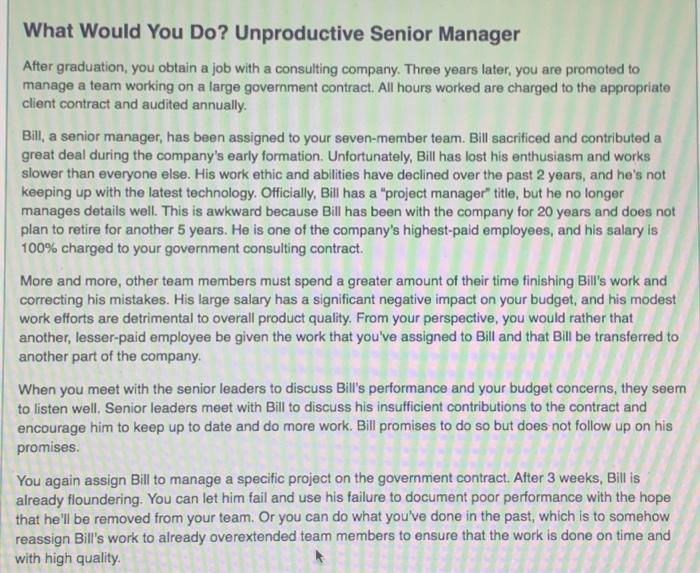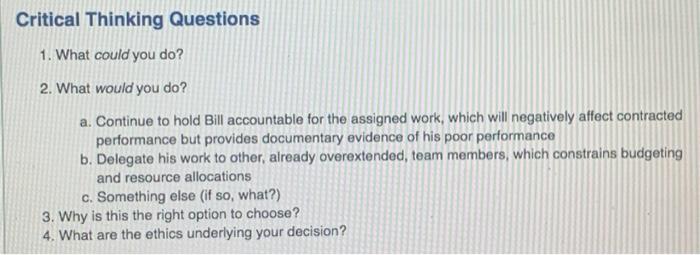After graduation, you obtain a job with a consulting company. Three years later, you are promoted to manage a team working on a large government contract. All hours worked are charged to the appropriate client contract and audited annually. Bill, a senior manager, has been assigned to your seven-member team. Bill sacrificed and contributed a great deal during the company's early formation. Unfortunately, Bill has lost his enthusiasm and works slower than everyone else. His work ethic and abilities have declined over the past 2 years, and he's not keeping up with the latest technology. Officially, Bill has a "project manager" title, but he no longer manages details well. This is awkward because Bill has been with the company for 20 years and does not plan to retire for another 5 years. He is one of the company's highest-paid employees, and his salary is 100% charged to your government consulting contract. More and more, other team members must spend a greater amount of their time finishing Bill's work and correcting his mistakes. His large salary has a significant negative impact on your budget, and his modest work efforts are detrimental to overall product quality. From your perspective, you would rather that another, lesser-paid employee be given the work that you've assigned to Bill and that Bill be transferred to another part of the company. When you meet with the senior leaders to discuss Bill's performance and your budget concerns, they seem to listen well. Senior leaders meet with Bill to discuss his insufficient contributions to the contract and encourage him to keep up to date and do more work. Bill promises to do so but does not follow up on his promises. You again assign Bill to manage a specific project on the government contract. After 3 weeks, Bill is already floundering. You can let him fail and use his failure to document poor performance with the hope that he'll be removed from your team. Or you can do what you've done in the past, which is to somehow reassign Bill's work to already overextended team members to ensure that the work is done on time and with high quality. Critical Thinking Questions 1. What could you do? 2. What would you do? a. Continue to hold Bill accountable for the assigned work, which will negatively affect contracted performance but provides documentary evidence of his poor performance b. Delegate his work to other, already overextended, team members, which constrains budgeting and resource allocations c. Something else (if so, what?) 3. Why is this the right option to choose? 4. What are the ethics underlying your decision








